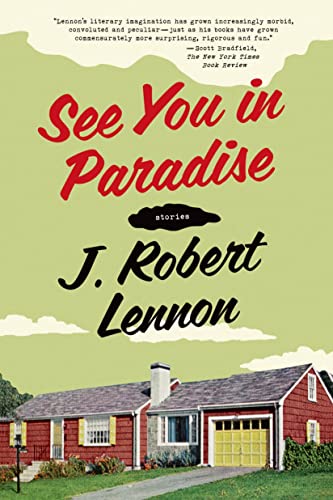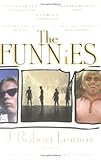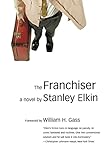
1.
J. Robert Lennon, a highly undervalued writer and one of the great pessimists of our time, has just released a collection of short stories culled from the past 15 years, a period that spans most of his career. He’s a writer’s writer, the kind of guy that isn’t really famous but has published dozens of stories, gets reviewed everywhere, and has a small cadre of intense fans (of which I am one). He grew up in New Jersey and teaches now at Cornell, and his fiction is often set in small, not particularly bucolic northeastern towns.
Lennon’s appeal is, in part, his conversational writing style — his stories are full of the kind of devastation that sneaks up on a reader between witty observations and one-liners. Like the other great pessimists — Stanley Elkin, Leonard Michaels, and Lorrie Moore among them — Lennon’s sense of humor serves him well, and even his most serious work is absent of authorial brooding. Instead, a jittery anxiety pervades Lennon’s work, and his oeuvre reads like a guide to all of the things that can go wrong for, or within, a person.

 His new collection of stories, See You in Paradise, exhibits the best of his tragicomic style. The pieces in the book have been published in magazines as diverse as The New Yorker and Weird Tales. Because they cover so much of Lennon’s career (roughly from the publication of his second novel, The Funnies, until the publication of his most recent, Familiar), See You in Paradise is a bit of a literary grab bag of his evolving style. While some stories, like “Farewell Bounder,” follow a well-trod narrative arc, others, like the list-based “The Accursed Items” eschews linear narrative altogether.
His new collection of stories, See You in Paradise, exhibits the best of his tragicomic style. The pieces in the book have been published in magazines as diverse as The New Yorker and Weird Tales. Because they cover so much of Lennon’s career (roughly from the publication of his second novel, The Funnies, until the publication of his most recent, Familiar), See You in Paradise is a bit of a literary grab bag of his evolving style. While some stories, like “Farewell Bounder,” follow a well-trod narrative arc, others, like the list-based “The Accursed Items” eschews linear narrative altogether.
2.
 I came to Lennon via Mailman, a maximalist novel about a paranoid, perverted mail carrier whose version of going postal involves opening, reading, and archiving the letters on his route. “The way he sees it,” writes Lennon, “his job is to deliver the mail, to bring it from the P.O. to his customers and from his customers to the P.O. This task he reliably accomplishes each day. What happens to the mail in the interim is nobody’s beeswax but his own.”
I came to Lennon via Mailman, a maximalist novel about a paranoid, perverted mail carrier whose version of going postal involves opening, reading, and archiving the letters on his route. “The way he sees it,” writes Lennon, “his job is to deliver the mail, to bring it from the P.O. to his customers and from his customers to the P.O. This task he reliably accomplishes each day. What happens to the mail in the interim is nobody’s beeswax but his own.”
As a result, Mailman (for that’s what he’s called throughout the book, even though we glean from dialogue that his name is Albert Lippencott) possesses a masterful knowledge of the townspeople. This goes awry when grad student Jared Sprain commits suicide and Mailman realizes that he still has the intercepted letter that might have saved the young man’s life. What’s more, a woman on his route is onto him. In the coffee house in the middle of town, she confronts Mailman and demands answers about his creepy behavior. During their confrontation, Mailman’s manic thoughts intrude:
“I want you. To tell me,” she says, leaning over the table a little and her tanktop falls forward revealing her breasts which he can’t help looking at, which looking she notices and does nothing about and even maybe smiles, seeing that she is right about him, he’s not only a loose wheel, a hothead, a live wire, but is also a sexual predator who takes every opportunity he can to look down girls’ shirts—which is true! He does, he looks! But he’s no predator! He does not in any way connect his aggressive (yes!), violent (it’s true!) feelings against the mailboxes at 200 Kueka to the really-very-nice-to-look-at breasts of this very angry girl herself of which the breasts are a part! Sex and violence are not in any way joined in his worldview!—and she wants him to tell her, she says, “what you were doing…in Jared Sprain’s mailbox. After midnight.”
 For Mailman, the “burden” of bearing witness to and absorbing the secrets of the townspeople sends him spiraling into literal madness (characters in Lennon’s fiction often experience change, but rarely for the better). He uses his considerable linguistic dexterity to illustrate Mailman’s scattered mind — his near-stream-of-consciousness interludes are reminiscent of those in Stanley Elkin’s Franchiser — which helps the reader understand Mailman’s anxieties. Mailman both acknowledges and denies his perversity (he cops to peeking down this woman’s shirt, but his bigger problem is that he has a crush on his actress sister). It’s a deft move, like that of a liar who confesses many small sins in avoidance of the larger transgression.
For Mailman, the “burden” of bearing witness to and absorbing the secrets of the townspeople sends him spiraling into literal madness (characters in Lennon’s fiction often experience change, but rarely for the better). He uses his considerable linguistic dexterity to illustrate Mailman’s scattered mind — his near-stream-of-consciousness interludes are reminiscent of those in Stanley Elkin’s Franchiser — which helps the reader understand Mailman’s anxieties. Mailman both acknowledges and denies his perversity (he cops to peeking down this woman’s shirt, but his bigger problem is that he has a crush on his actress sister). It’s a deft move, like that of a liar who confesses many small sins in avoidance of the larger transgression.
The Guardian called Mailman Lennon’s “application to be regarded as a Great American Novelist,” but the book set off a rough patch in Lennon’s literary career. Mailman was well-received by critics but never caught on, and his next novel, Happy Land, was shelved by his publisher at the last moment due to libel concerns — the main character bore a strong resemblance to American Girl founder Pleasant Rowland. After publishing four books in eight years, Lennon’s career went into a slump, and it was six years between Mailman and his next novel.
3.
 He returned with a new set of anxieties, first exhibited in his gothic post-war novel, Castle. His tone had shifted somewhat from his earlier comic fiction, but J. Robert Lennon’s universe was still one in which characters do not trust themselves. They start out ineffective, insecure, or, sometimes, in the case of the deranged Mailman in Mailman, insane, and then find themselves living in worlds where reality shifts, or seems to shift, before their eyes. In Castle, Eric Loesch returns to his hometown, after a long absence, and buys a 600-acre plot of land. In the process of fixing up the dilapidated house that stands on the property, he discovers that there is a castle right in the middle of the land. His deed reveals that this portion of the property is owned by somebody else — only nobody can tell him who. That is one mystery to be solved; the other is the mystery of Eric Loesch himself, an unreliable narrator whose past shifts the second half of the book into a radically unexpected place.
He returned with a new set of anxieties, first exhibited in his gothic post-war novel, Castle. His tone had shifted somewhat from his earlier comic fiction, but J. Robert Lennon’s universe was still one in which characters do not trust themselves. They start out ineffective, insecure, or, sometimes, in the case of the deranged Mailman in Mailman, insane, and then find themselves living in worlds where reality shifts, or seems to shift, before their eyes. In Castle, Eric Loesch returns to his hometown, after a long absence, and buys a 600-acre plot of land. In the process of fixing up the dilapidated house that stands on the property, he discovers that there is a castle right in the middle of the land. His deed reveals that this portion of the property is owned by somebody else — only nobody can tell him who. That is one mystery to be solved; the other is the mystery of Eric Loesch himself, an unreliable narrator whose past shifts the second half of the book into a radically unexpected place.
There is a literal shifting of reality in Lennon’s masterwork, Familiar, where Elisa Macalister Brown’s life jumps tracks as she drives home from the gravesite of her difficult teenage son. She finds herself, mid-road trip, in different clothes, a different body. When she returns home, her marriage is different, her job is different, and the man with whom she was having an affair is only a platonic acquaintance. What’s more, her son is alive and grown, although their relationship is no less strained than it had been in the other version of reality, where he had died. In her first life, Silas’s death was both a tragedy and a relief, and she remained close to her older son, Sam. Now both sons are estranged from the parents, lost to a world of gaming on the other side of the country. As the details of Elisa’s life unfold — both before and after the threads of her personal history diverge — readers are left wondering less about which universe is the true one, and more about which version of Elisa and Silas’s relationship is accurate — who tormented whom? (Side note: If you want to scare yourself about raising children, Familiar is an excellent way to do so.)
These themes are echoed somewhat in the opening story of See You in Paradise. In “The Portal,” a family finds an unkept portal in the woods behind their house. At first, this is an occasion for antics; when the family walks through, they find themselves in a parking lot just across town. Told in the first person, it’s a great conveyer for Lennon’s trademark conversational voice, and, at first, the portal is a quick vacation for a family that gets along easily. But, much like in Donald Barthelme’s “I Bought a Little City,” the narrator’s simple-minded optimism quickly gives way to something darker. Each time the family reenters the portal, they are transported into more disturbing worlds, and soon the other worlds are manifestations of each family member’s baser fantasies. Inevitably, their real-world selves change as well; the kids are preteens when the story opens, but with every adventure they inch further from their parents, until at last they are immersed in teenage sulk. With the seams of their family structure stretched, they finally give up on the portal, and togetherness, completely: “The kids were too busy indulging their new selves and quit playing make-believe out in the woods,” Lennon writes. “And Gretchen and I were lost in our private worlds of self-disgust and conjugal disharmony.” It feels like the end of the story, but Lennon keeps going, pushing past the plot and trading the true magic of the portal for the magic of happy relationships and intact families, riffing on who has them and who doesn’t.
A different type of family dynamic is at work in the title story, “See You in Paradise,” when Brant Call, alumni magazine editor and blandly nice guy, gets involved with the daughter of a rich alumnus. Through sheer inertia, they become an item. Lennon brilliantly employs the passive voice to describe their courtship, as in, “Brant and Cynthia were seen around together, holding hands and smooching on benches.” Brant gets an offer from Cynthia’s father, a chance to man his company’s offshore headquarters in exchange for permission to marry Cynthia. Brant isn’t sure he even wants to be with her, but decides to take the offer. The headquarters is a junky hut in the middle of nowhere, and once he arrives he is, more or less, alone. Brant is a cipher, and without anyone to lead him, he settles into what can generously be called piggish depravity. And things go downhill for him from there.
One of his funniest stories in the book, “The Future Journal,” follows Luther, an elementary school science teacher, after he abruptly quits his job. At one point, he sings “in the operatic style,” about having quit:
I finally got fed up with BSE
I quit my job, albeit cowardly
Ne’er again shall I have to say this:
Plants make food through photosynthesis!
He is the buffoon: he quits by telling his girlfriend, a fellow schoolteacher, to give his boss the shove on Luther’s behalf; he writes checks at a fast food restaurant; he tries, in a kind of post-outburst panic, to meditate, but falls asleep. It’s the kind of silliness that is filled with pathos — if I were a matchmaker of literary characters, I might fix Luther up with Lorrie Moore’s Agnes from “Agnes of Iowa.” Luther’s mini-breakdown leads him to his ex-wife’s house, where he visits his beloved young daughter. Like most of Lennon’s characters, Luther’s affability is tinged with menace — he sneaks into the house, where he surprises his daughter in her room. Their reunion is sweet, and after everyone has gone to bed, Luther sneaks back out.
[T]here was no noise and little light. The master bedroom door was shut. I wanted to go in, I wanted to see my ex-wife sleeping, but of course I didn’t. This is just not something people do. I tippy-toed down the stairs and out the door. No alarm, of course. They are convinced they are safe, and they’re probably right. The world is not as dangerous as we like to think.
Whether it’s in “No Life,” where an infertile couple visits potential adoptees, or “Ecstasy,” when a young babysitter finds out the children’s parents have been killed, the stories here are very much about familial love, and all the things can go wrong for, or in, a family. And it’s the anxiety of parenthood — not of making mistakes, but of a parent’s crushing love and the vulnerability it exposes — that stands out most in this exceptionally readable, devastating collection.









